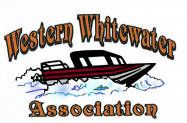Meeting and Activity Report by Robert S, “Bob” Hays, WWA Representative
CIPLC Recreational Subcommittee – July 2020
Several telephone/ zoom conferences have been held this spring and early summer mostly regarding the integration of the Collaborative’s Desired Future Conditions (DFC) into the Forest Plans. This has been complicated after the administrative decision was made to go back to two different plans based on the old Challis National Forest and Salmon National Forest plans adopted in 1988 and 1989. The change was from a combined plan for the Salmon-Challis National Forest (SCNF) that has been the combined form for at least twelve years. At least two years had been invested in the new plan development, as you may recall these were originally to cycle every ten to fifteen years. That being said, the process is still in the works and I have attached two documents for your consideration.
The first document Draft WSR Suitability Summary Report for Salmon-Challis National Forest is regarding the draft recommendation from the collaborative regarding Wild and Scenic River (WSR) Designations. Remember this is a “draft” and in its final form, the CIPLC document will recommend to the Salmon Challis National Forest. The SCNF will make the final recommendations to Congress for Designation. This is part of the planning process and a lot of work has gone into this portion of the plan revision, there are around 100 stream segments that qualified for consideration in this process.
Please note that the CIPLC draft recommendations contains no waters that are traditionally navigated and are extensions of existing WSR systems primarily dealing with the Middle Fork of the Salmon River.
The second document Sawmill Proposal is the list of Desired Future Conditions for your consideration. If you may recall the WWA sent a letter to the Forest Supervisor regarding our concerns with the “then” draft plan which has now been scrapped and the old plan language must be considered. While this seems pretty straight forward please remember what is going on, with the pandemic, new administrative directions and an impending election, there are several folks/agencies guessing which direction to go.
With that in mind the Recreation Subcommittee put together a trails proposal to demonstrate a collaborative effort between user groups, agencies, property owners and political subdivisions (counties). The proposal included a subsequent field trip to Sawmill Canyon on the Little Lost River, north of Howe and east of Mackay, Idaho. Becky and I attended this meeting in the spirit of collaboration, and found that while the WWA membership may operation on the river many of the issues that were discussed on the field trip where more than likely discussed prior to the permit system being established on the Main Salmon River to limit the amount of use and / or access. The goal of the trails proposal is to maintain the amount of motorized and other trails at the levels established in the original plan.
As WWA Members know with limited resources, use is concentrated, and the seeming solution is to establish a permit system to slot use into time frames and avoid over-crowding on popular recreational sites. With the amount of lands available and the historic trails that were used for everyday travel and commerce you would think that there would be ample opportunities, but then came along such actions as wilderness areas, road-less areas, antiquities act, travel plans, fire restrictions, loss of access due to easement loss, changes in trail machine design and several more items that escape me at the moment but have a cumulative effect on citizen access to public lands for recreational (and other) purposes.
Thanks for reading and feel free to take on a few of these access areas that interest you. Dig into the details and facts surrounding the evolution of accessing the resource you will be surprised and more than likely find folks with similar concerns and your voice is needed to push back on changes that effect access to public lands.
Bob and Becky Hays, WWA Members


